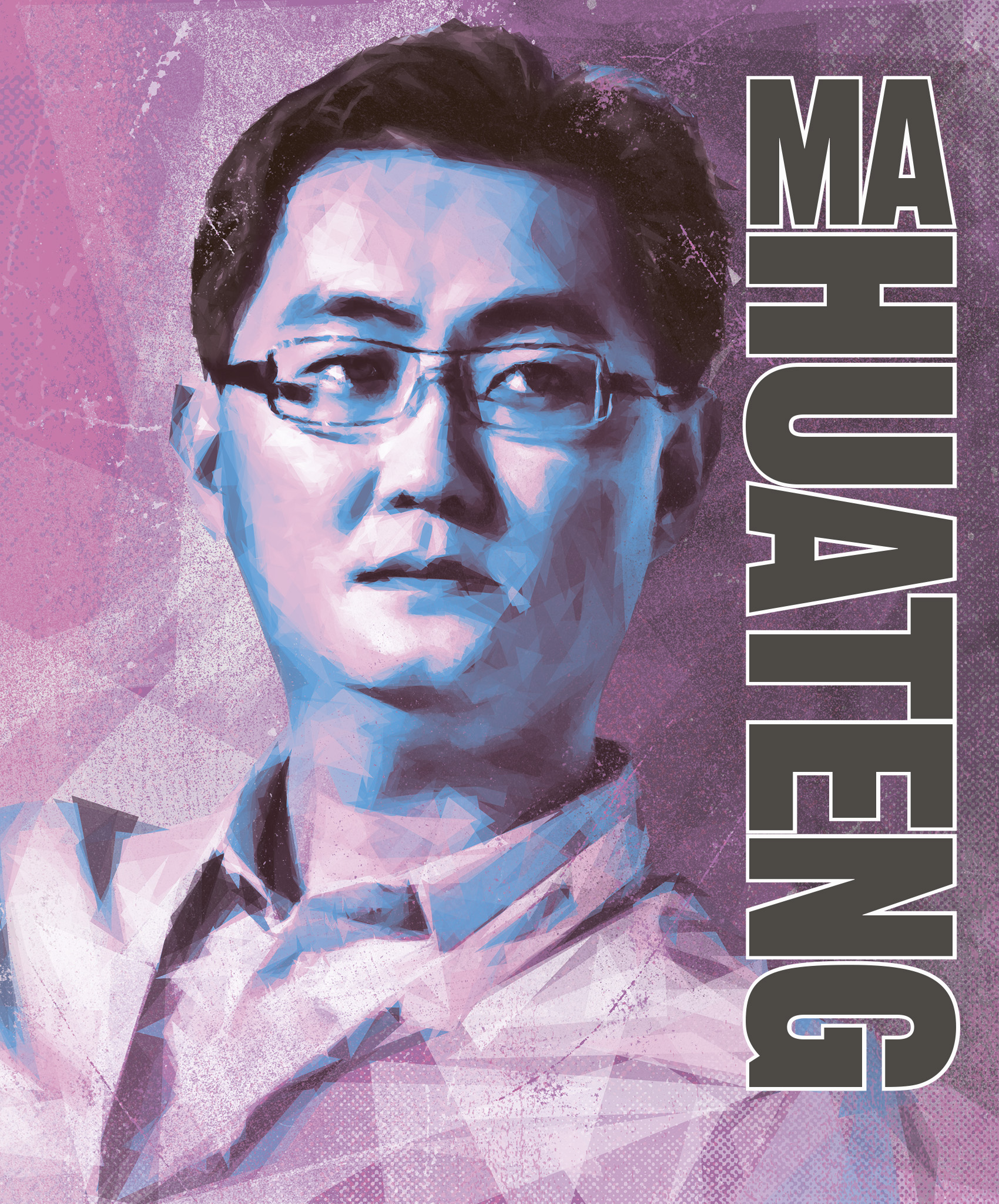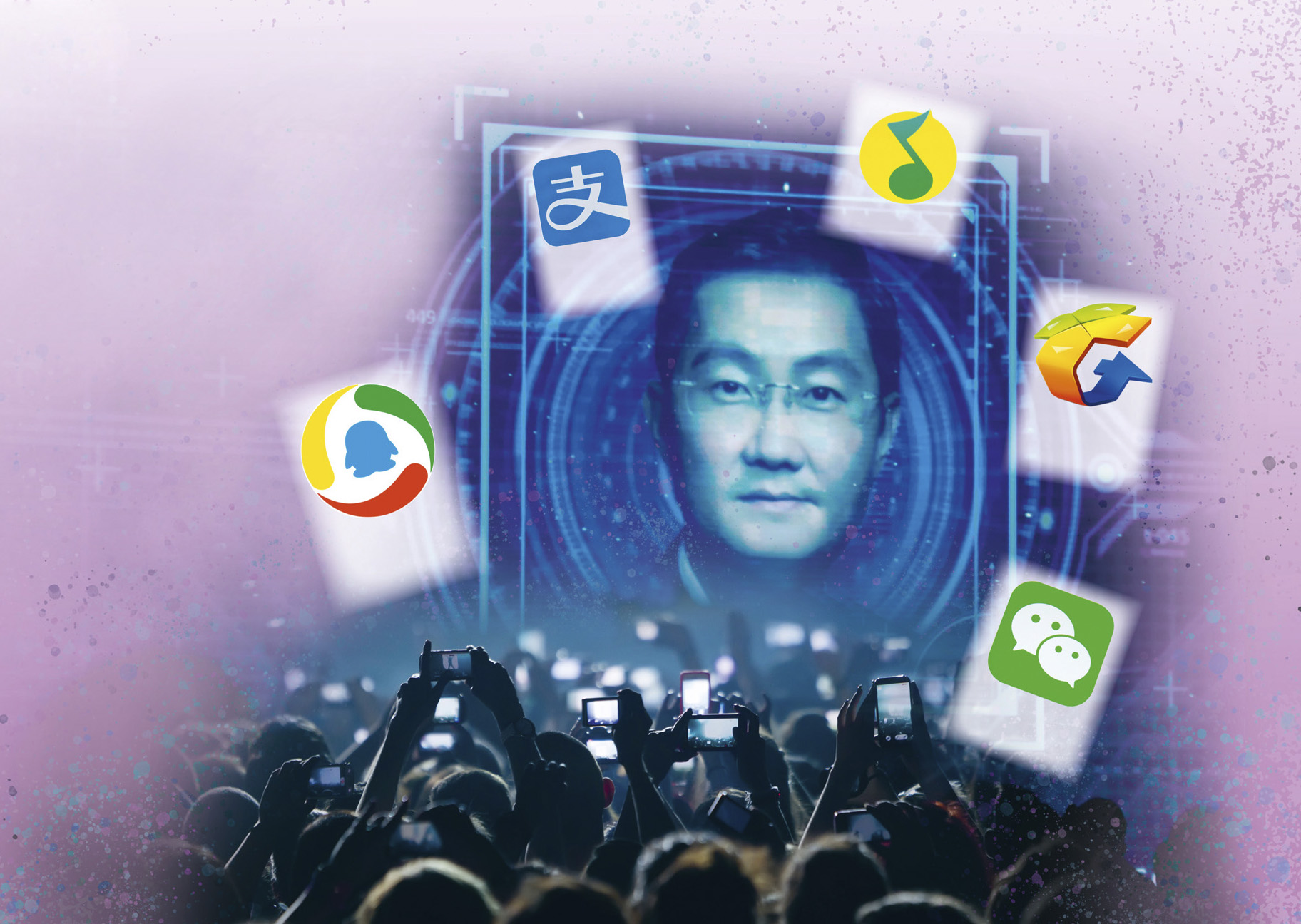
MA HUATENG
1971–
Ma Huateng—often known as “Pony Ma”—cofounded the successful software company Tencent in 1998. With his passion for computer software and talent for spotting opportunities in the growing Chinese online market, Ma helped turn Tencent into one of the biggest internet conglomerates in the world.
Born in Chaoyang, in the southern Chinese province of Guangdong, Ma Huateng moved to Shenzhen, near Hong Kong, when his father found work there as a port manager. As a child, he had a keen interest in science, which he channeled into computing, graduating with a degree in computer science from Shenzhen University in 1993.
After graduation, Ma took a job at telecoms company China Motion Telecom Development, creating software for pagers. Although he was working in the field he loved, he was earning less than $200 a month, so he moved to a competitor and began to harbor hopes of establishing his own company. At the time, only around one in 100 people in China had a computer, but Ma recognized the potential of the imminent digital revolution. Seeing that there were great opportunities for those who had ideas and were prepared to finance them, Ma, along with four former university classmates, founded software company Tencent in 1998.
Tencent takes off

A couple of years earlier, Ma had attended an event to publicize ICQ—the world’s first personal computer-based instant messaging service. Determined to recreate this in China, he launched Tencent’s version, the instant messaging service OICQ, in February 1999. A lawsuit brought by American giant AOL, which owned ICQ, quickly followed, but Ma renamed his product QQ, and it proved an instant hit with the Chinese public. By the end of 1999, the service had more than 1 million registered users. Realizing that cell phone use was increasing exponentially, Ma expanded QQ’s service to provide a mobile messaging platform in 2001. Three years later, with profits soaring, he floated Tencent on the Hong Kong stock exchange, raising $200 million.
As internet use exploded worldwide, Ma began to supply Tencent’s QQ users with a growing range of products to keep their interest. Online and mobile gaming, social networking, e-commerce, and entertainment services were added over the next 10 years, with the aim of making the Tencent portal an integral part of everyday life. In 2011, this approach culminated in the launch of the app WeChat. Swiftly becoming one of the most popular instant messaging services in the world, it offered chat and mobile payment facilities, as well as social media functions, allowing users to fulfill all their daily digital needs through a single application.
Ma’s success has been based on his expert understanding of these user needs and his ability to respond quickly to a changing digital landscape with relevant services. Focusing on product quality and design, he has used internal competition and a young, technology-savvy workforce to fuel innovation, and is renowned for his “10/100/1,000” rule—whereby product managers must run 10 end-user surveys, read 100 users’ blogs, and collect feedback from 1,000 people on their user experience each month.
Knowing what people want, and then being able to deliver these services via cell phone, has allowed Ma to dominate the digital market and become one of China’s most influential tech developers and industry leaders. With ambitions to move into artificial intelligence, robotics, and space technology, he is looking to continually expand Tencent’s products and reach globally and beyond.
“Try bravely, without hesitation.”
Ma Huateng

Ma Huateng’s launch of a range of successful mobile apps capitalized on Chinese consumers’ preference for using their smartphones rather than computers as a means of accessing internet services.
“A service starts with the satisfaction and needs of its users in mind and is defined by those two things.”
Ma Huateng
DENISE COATES

After establishing Bet365 in a Portakabin in a parking lot in 2001, British entrepreneur Denise Coates built it into one of the largest online betting companies in the world.
Coates (1967–) worked in the cashier’s department of her family’s bookmaker’s while at school and later turned around the fortunes of a small chain of betting shops. She realized that with the advent of the internet, millions of people would prefer to gamble on sport from the comfort of their own homes rather than visit a betting shop. Borrowing money to launch the business, she set up Bet365. It grew at breakneck speed: in 2018 it had more than 45 million users and attracted more than $50 billion in bets. In 2012, she set up the Bet365 Foundation (now the Denise Coates Foundation), using company profits to help support local, national, and international charities.
“WEALTH WON’T GIVE YOU SATISFACTION; CREATING A GOOD PRODUCT THAT’S WELL RECEIVED BY USERS IS WHAT MATTERS MOST.”
Ma Huateng
Facebook post, October 2019

▲ Ma Huateng has expanded Tencent’s influence and product lines by acquiring stakes in companies with related interests. These include artificial intelligence (AI) specialists BTech Robotics, which produces humanoid robots. Tencent provided funding of $120 million for the company in 2018.
MILESTONES
FOUNDING FRIENDS
Cofounds with friends the software company Tencent in 1998; becomes CEO, despite natural shyness.
INSTANT MESSAGING
Unveils messaging service OICQ (later QQ) in China in 1999. It gains immediate popularity.
ONLINE GAMING BOOM
Launches Tencent Games in 2003. By 2019, it is the largest online gaming company in the world.
STARTS APP
Presides over the launch of WeChat messaging service in 2011, which has over 1 billion users by 2018.
